Picking Petals: The U.S. Supreme Court's Opportunity To Address Radical Bias In The Curtis Flowers Case

Transcription
http://www.prosecutorialaccountability.com/2018/09/13/ms-picking-petals-the-u-s-supreme-courts-opportunity-to-address-racial-bias-in-the-curtis-flowers-case/
MS: Picking Petals: The U.S. Supreme Court’s Opportunity to Address Racial Bias in the Curtis Flowers Case
by Bert | Sep 13, 2018 | Mississippi, Notable
It is extraordinarily difficult not to get worked up when thinking or writing about Curtis Flowers’s case. On death row in Mississippi, Mr. Flowers has been tried six times—six!—for the same murder. In July of 1996, four employees of small local business Tardy Furniture were shot and killed in their store, in the very small town of Winona, just across the street from where Emmett Till got off the train to stay with his relatives in 1955. The first three trials resulted in convictions later overturned due to prosecutorial misconduct and the prosecution’s racial discrimination against prospective African-American jurors during jury selection. Trials four and five resulted in hung juries, with juror votes divided along racial lines. District Attorney Doug Evans, the same prosecutor for every trial, again tried Mr. Flowers, and this sixth time secured another capital conviction.
Mr. Flowers’s case has gained increased visibility this year. A highly-acclaimed podcast called “In the Dark” from APM Reports focused the entirety of its second season on the case, publishing 11 episodes as the culmination of its in-depth year-long investigative reporting effort. The case is also the subject of a 2018 episode of the cable TV show, “The Wrong Man.” So many aspects of Mr. Flowers’s case are remarkable. Perhaps the most critical is that the fundamental question of whether he is actually guilty still hangs over the head of every actor in the criminal justice system. Yet, insofar as the legal proceedings are concerned, one question looms larger at this particular moment: did Doug Evans once again racially discriminate when picking the jury for the sixth trial?
The numbers—pulled from Mr. Flowers’s pending petition for certiorari at the U.S. Supreme Court—tell an unconscionable story of racial discrimination in a capital trial context. Consider these facts about the case:
Over the first two trials, the prosecutor attempted to exclude all 10 qualified African-American jurors
The first jury was all-white
The second jury had 11 white jurors and only one African-American juror (whom the judge did not allow the prosecutor to strike because it found the strike was racially-motivated)
In the third trial, DA Evans used all 15 of his peremptory strikes against African-Americans; the jury had only one black member
At the fourth trial, every single one of the 11 strikes the State utilized was targeted to exclude an African-American juror; the jury ultimately had seven white members and five black members
Evans struck five of the six African-Americans at the sixth trial, securing a jury of 11 white jurors and one black juror even though the venire was 42% African-American.
On appeal after the last trial, the Mississippi Supreme Court denied Mr. Flowers’s Batson claim. Remarkably, six justices, over the dissent of three others, held that Doug Evans did not discriminate. Even though the U.S. Supreme Court has squarely held that “historical” evidence that a prosecutor or office has engaged in discrimination must factor into a court’s Batson analysis, the majority ignored the very history evident from Flowers’s own case. As one dissenting justice pointed out:
The same prosecutor who this Court found to have engaged in purposeful discrimination in Flowers III prosecuted the trial before this Court on appeal today. On its own, this fact is not dispositive of a finding of racial discrimination. This history, however, cannot be ignored and is part of the relevant circumstances that must be considered in this case.
After that opinion, Mr. Flowers sought U.S. Supreme Court review. The Court remanded the case for reconsideration in light of its Batson decision in Foster v. Chatman (a case we analyzed here). On remand, the Mississippi Supreme Court again denied the Batson claim by a 6-3 vote. As the cert petition explains, this opinion does not meaningfully address Evans’s history of racial discrimination and how it should inform judicial review of his peremptory strikes. Instead, it rejects comparisons between this case and controlling U.S. Supreme Court cases, effectively saying little more than “this case is not exactly like that, so we will ignore that one.”
There are not many cases like Flowers. The record is undeniable. Racism pervades the mind-boggling six trials Mr. Flowers has endured. Beyond that, exhaustive research has established that Doug Evans and his prosecutors are four-and-a-half times more likely to strike black jurors than white jurors. Even the U.S. Supreme Court—which has long been, and will continue to be, reluctant to appropriately tackle most issues of racial justice—may recognize Flowers for what it is: low-hanging fruit, an opportunity to signal at least a symbolic commitment to curbing prosecutorial racism.
As a sidenote, and not as a legal argument, the podcast about the case is well worth listening to for the first person accounts from African-American citizens who testified in the trial for the state and served on the jury about the racist and racially-motivated harassment, threats, and bribery they experienced from the DA’s office and staff.
While this case presents as a fairly easy one in which to determine (and condemn) racial discrimination by the State, lower courts have regularly rejected defendants’ Batson claims – even when they provide documentary evidence proving prosecutors intended to exclude racial minorities because of their race. Mr. Flowers should not need this kind of smoking-gun evidence to prevail. But, if the Court denies certiorari or grants it while denying the claim on the merits, do not be surprised. We live in an era where slam-dunk claims of racial discrimination get ignored or diminished. Whatever happens, Doug Evans deserves ongoing scrutiny. The quest for justice—in Mr. Flowers’s case, in the small town of Winona and in all of Montgomery County, MS—must continue.
In the meantime, we await the State’s brief in opposition to the cert petition. At the moment, the pleading is due on September 26.
Other posts by this author
|
2023 may 31

|
2023 mar 20
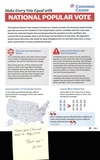
|
2022 aug 23

|
2022 aug 23

|
2022 aug 23

|
2022 aug 23

|
More... |
Subscribe
Get notifications when new letters or replies are posted!
| Posts by Charles Douglas Owens, II: |
|
email me |
|---|---|---|
| Comments on “Picking Petals: The U.S. Supreme Court's Opportunity To Address Radical Bias In The Curtis Flowers Case”: |
|
email me |
| Featured posts: |
|
email me |
| All Between the Bars posts: |
|
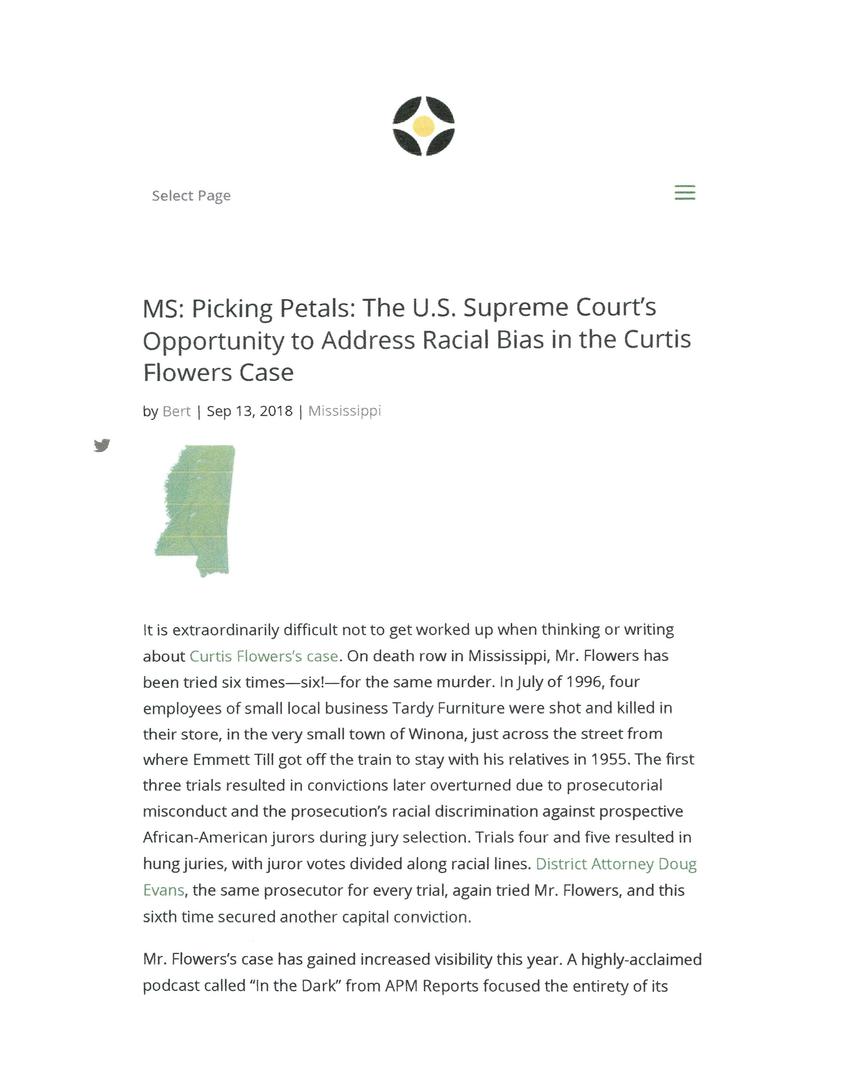
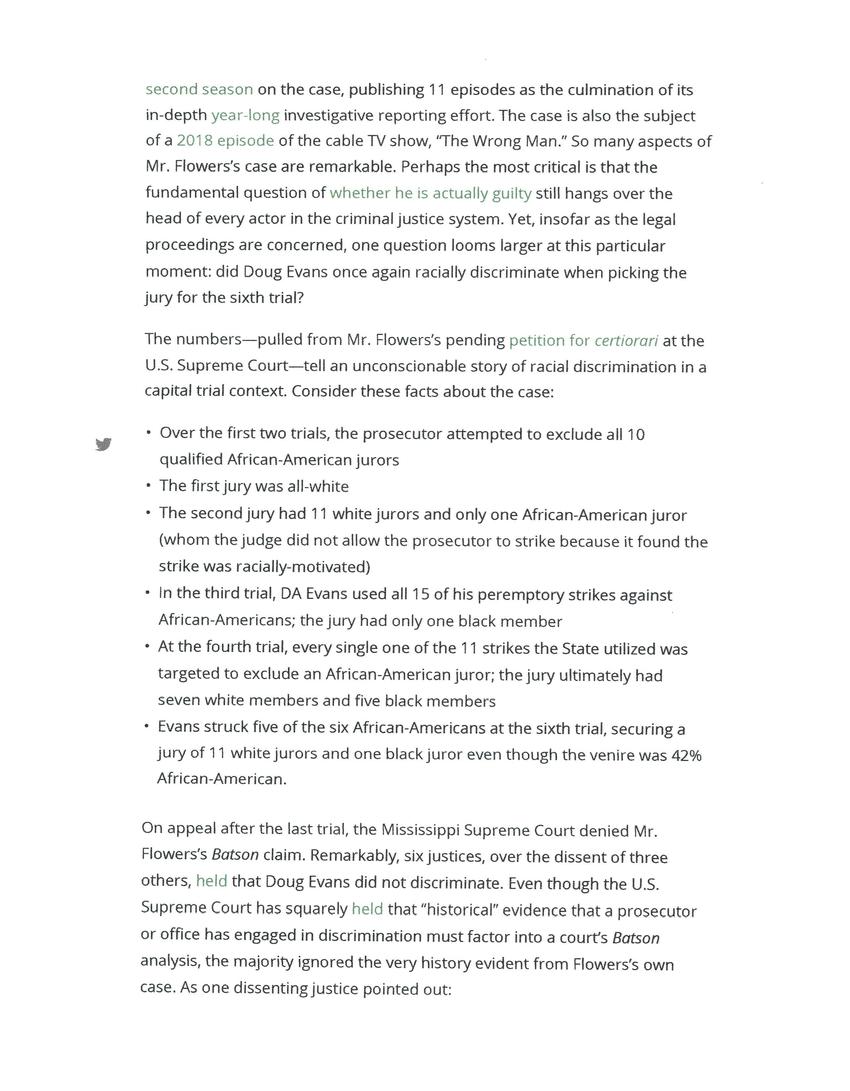
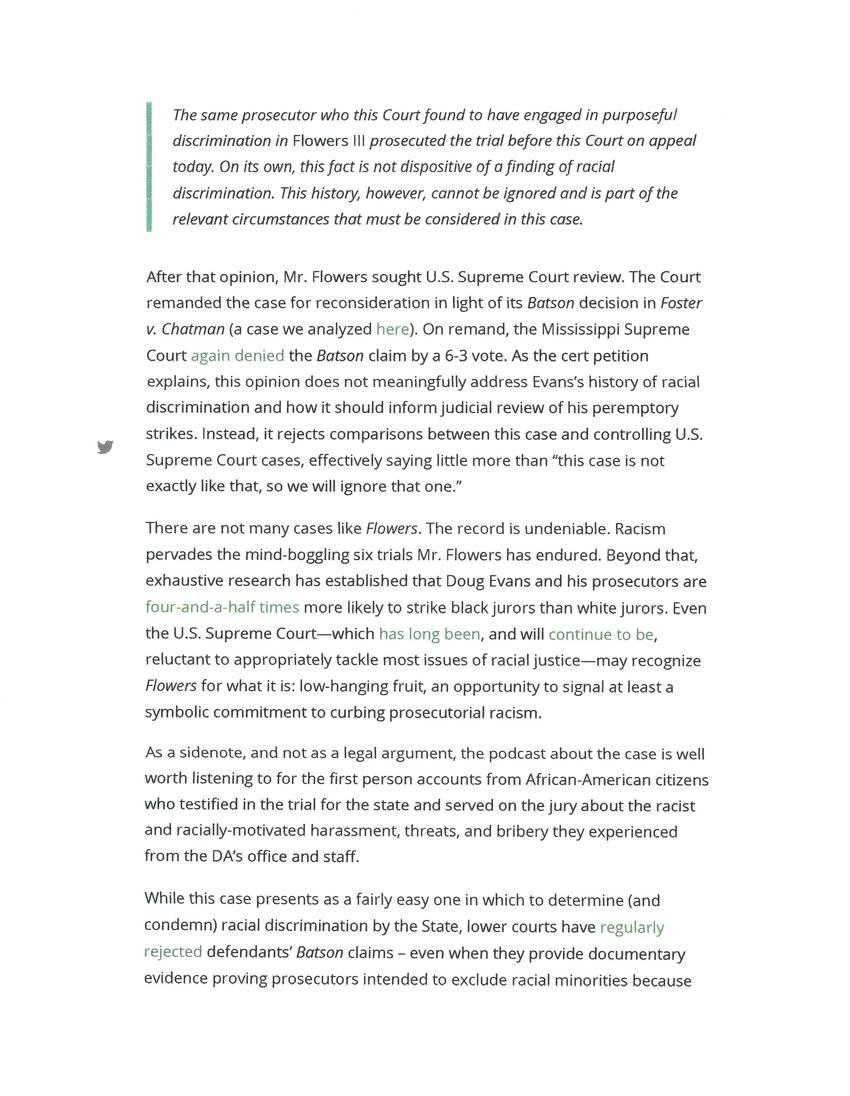
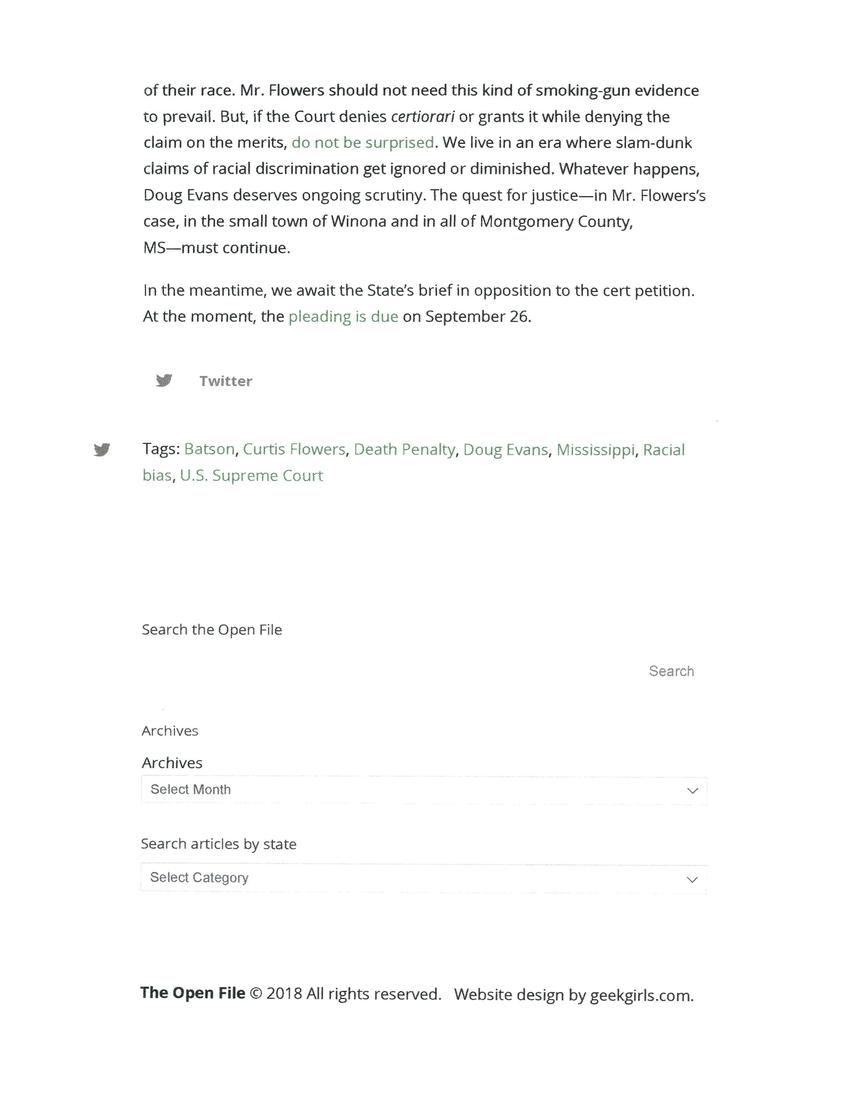

Replies